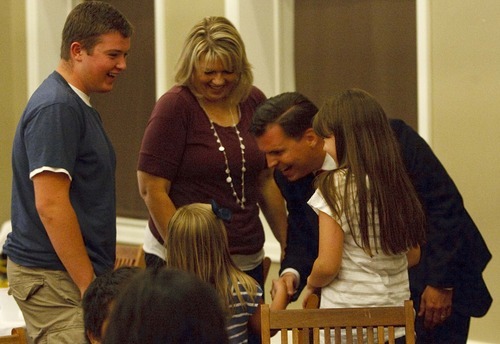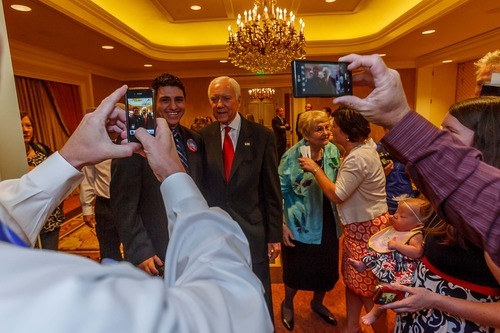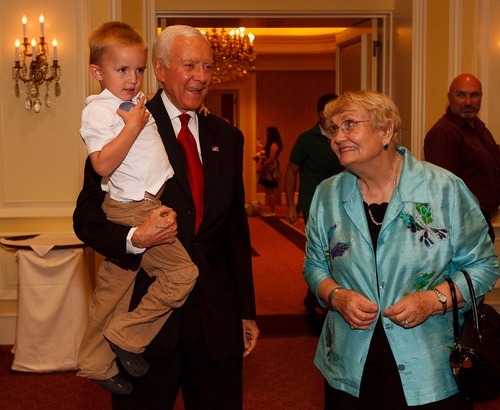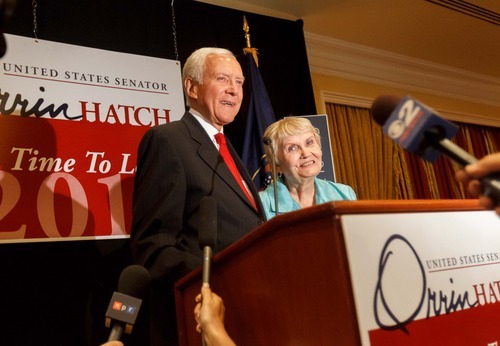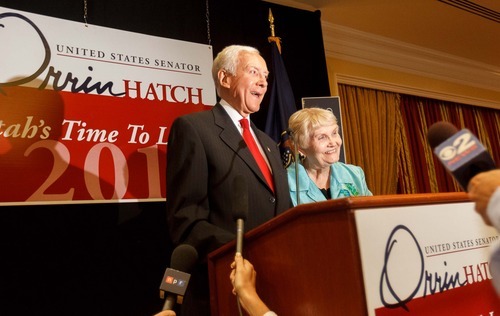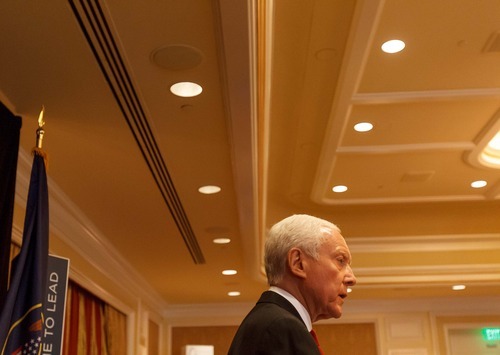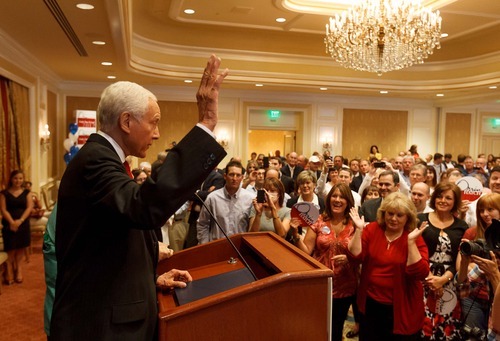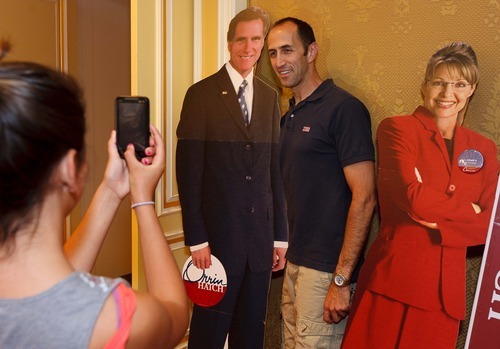This is an archived article that was published on sltrib.com in 2012, and information in the article may be outdated. It is provided only for personal research purposes and may not be reprinted.
The tea party, big-spending PACs and challenger Dan Liljenquist failed Tuesday to force 78-year-old Orrin Hatch into retirement. The self-proclaimed "tough old bird" flew easily through the GOP primary, so now only Democrat Scott Howell stands between him and a record-shattering seventh term.
"I'm very energized by all this," Hatch said as it became clear he would likely win by a wide margin. "This will give us an opportunity to help Mitt Romney to get the things that will really turn this country around."
He vowed to keep working hard in the general election, and said he will continue to stress how important is for him to become chairman of the Finance Committee, if Republicans can win control of the Senate.
"That's where 60 percent of all the spending is [controlled], that's where the entitlements are, it's where the terrible tax code is … it's all on that committee. Romney understands that," Hatch said.
"I've given it everything I have," Hatch said of the race. "I have a great time campaigning. It's the fun part of being in these offices."
Liljenquist — a former state senator who was just a year old when Hatch was first elected to the Senate 36 years ago — congratulated Hatch, and vowed to help him with the general election. Liljenquist lost every county, including his home county of Davis, in unofficial results.
"This race has been focused on the fiscal issues facing this country and I have appreciated the opportunity to meet and talk with the voters of Utah," Liljenquist said. "Senator Hatch has my support moving forward and I look forward to helping get this country back on track."
Liljenquist said it is difficult to say if he will run for political office again, but, "I have a passion for policy and I want to be involved in any way that I can."
Hatch's easy win shows how much Utah's political landscape changed since two years ago, when the tea party managed to dump three-term incumbent Sen. Bob Bennett at the state GOP convention.
Hatch avoided Bennett's fate first by spending heavily to recruit supporters to attend political caucuses to run as state GOP delegates — and replace many of the tea partyers that doomed Bennett. It helped him to survive the convention to face a primary.
"I think what also helped us was Mitt Romney's endorsement," said Dave Hansen, Hatch's campaign manager. "It wasn't just Mitt saying, 'I endorse Orrin.' He was saying, 'As president, I need Orrin Hatch in the Senate to help me.' That made a difference" with Romney-loving Utahns.
Hansen added, "Senator Hatch is also a tough, hard campaigner. He wears out 20-year-olds on the campaign staff."
Hatch spent a whopping $10 million on the race. "We had the resources to do what we planned to do. We had the money to go on TV early and stay there," Hansen said. "We put together an unprecedented organization. Not only did it help us to recruit delegates and people to attend the caucuses, but the lists we developed helped us in the primary to identify who we needed to get out to vote."
Hansen said Hatch was successful in keeping the campaign focused on messages that helped him. He refused more a single debate with Liljenquist during the primary campaign period, but Hansen said Hatch's polling showed people didn't care much whether they debated — so he said the emphasis by Liljenquist about debates did not hurt.
Hatch's heavy spending outpaced more than $1 million spent by the national FreedomWorks PAC, which had helped to defeat Bennett. (FreedomWorks spent even more than the $800,000 or so that Liljenquist's campaign itself spent).
Groups supporting Hatch also spent heavily to help him. Such PACs, including FreedomPath and the National Rifle Association, spent $969,000 to help him.
Hatch has now served 36 years, and would serve 42 years if he wins and serves a full seventh term until age 84. No other senator from Utah has served more than five terms. Hatch would also become the fifth oldest member of the Senate next year after retirements of others.
If Hatch can beat Howell — whom he defeated in 2000 — in the general election, Hatch will rank No. 3 in overall seniority in the Senate next year, and No. 1 among Republicans. That would make him the Senate President Pro Tempore if Republicans win the majority in the Senate, putting him in line for the presidency behind the vice president and speaker of the House.
Utahns in the past did not reelect others because of such seniority and power.
For example in 1932, Utahns rejected Sen. Reed Smoot, R-Utah, even though he was the chairman of the Finance Committee and was dean of the Senate as its longest-serving member after 30 years. In 1940, Utahns defeated Sen. William H. King, D-Utah, even though he was Senate President Pro Tempore at the end of his 24-year career.


